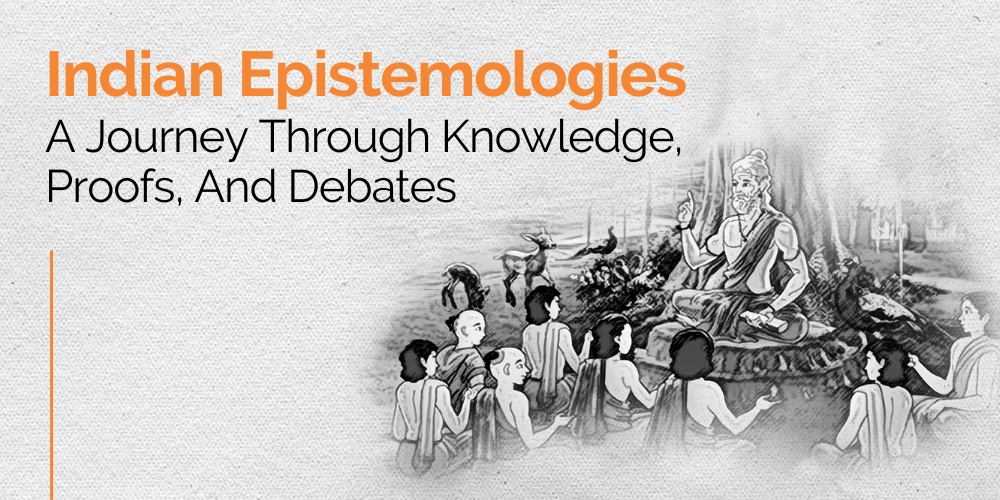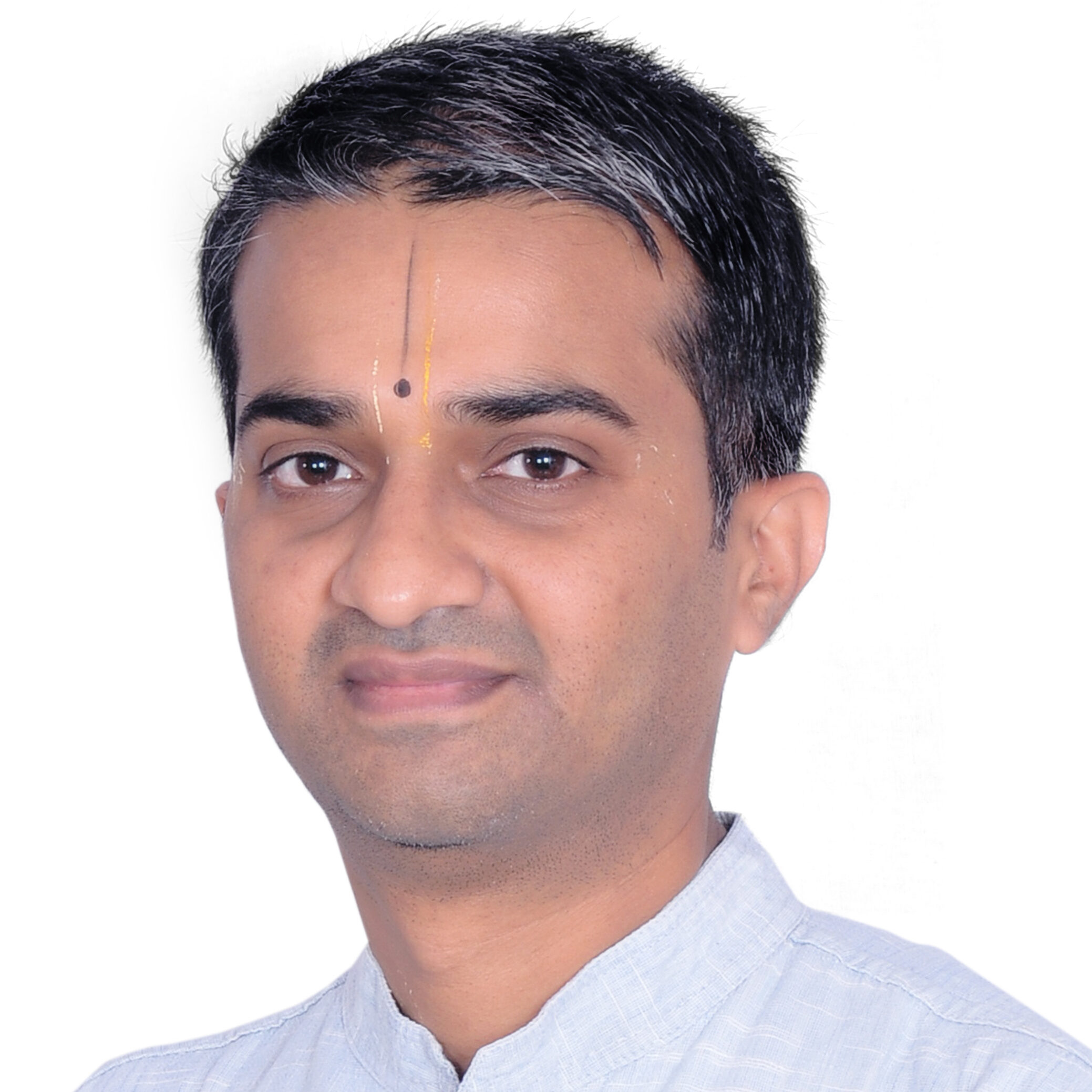
Indian Epistemologies: A Journey through Knowledge, Proofs, and Debates
This INDICA course serves as an introduction to Bhāratīya epistemology, incorporating some important frameworks, definitions and debates from Bhāratīya philosophical traditions.
Faculty
25 October 2023 - 27 March 2024
6:30 PM -8:00 PM IST
Every Wednesday
Introduction
Bhāratīya knowledge traditions are renowned for their rigorous dialectics. Despite differing foundational assumptions and objectives, all schools of thought – including Cārvāka, Bauddha, Nyāya, Mimāmsā, Advaita, Dvaita, among others – have engaged in debates concerning the substantiation and validity of their doctrines. Notably, some schools of thought such as Nyāya, Mimāmsā and Vedānta have delved deeper to construct comprehensive frameworks of their own for comprehending the nuances of knowledge, proof and debates.
In this course, we explore these frameworks from their original Sanskrit texts, drawing primarily from Nyāyasāra of Bhāsarvajña (belonging to the Nyāya School) and Pramāṇapaddhati of Jayatīrtha (belonging to the Mādhva Vedānta School) to develop skills in logically analyzing epistemologies. The course predominantly employs an inductive approach, enabling learners to formulate theories phenomenologically. We incorporate both classical and contemporary examples to help learners appreciate the wide-ranging applications facilitated by these methodologies. Additionally, we integrate insights from modern and Western philosophies to foster a holistic understanding.
Course Objectives
- To familiarize learners with the diverse Bhāratīya frameworks depicting epistemology.
- To instill a comprehensive understanding of terms and concepts related to knowledge and proofs (Pramāṇa), including logic
- To empower learners to discern errors in debates or arguments and construct logically flawless arguments.
Course Outcomes
- Empirical and Abstract Integration Students will develop the ability to inductively connect empirical observations and experiences with abstract concepts and theories
- Knowledge and Opinion Differentiation Learners will acquire the skill to distinguish between knowledge and opinion meticulously by analyzing evidence and evaluating proofs
- Argumentation and Logical Reasoning Participants will learn to construct coherent and compelling arguments that are free from logical flaws, ensuring effective communication and reasoning in academic and professional settings
Course Syllabus
- Module 1 – Basic Frameworks and Theories: Identification of objects, its uses, and fallacies; the nature of knowledge, its tools, and types; precision in definitions illustrated using epistemological definitions; the logic of categorization; theories of knowledge, doubt, and illusion; attributes of knowledge
- Module 2 – Perception (Pratyakṣa): The five elements, objects, and organs; errors in perceptions; external and internal perceptions; memory and experience
- Module 3 – Inferential Logic (Anumāna): Association and causality; types of relationships between objects/properties; types, parts, and fallacies of anumāna
- Module 4 – Debate (Kathā): Purpose, participants, and procedures for debates; types of debates; fallacies in debates/arguments
- Module 5 – Words (Āgama): Meanings of words; interpreting words and tools for content analysis
- Module 6 – Conclusion: A logical analysis of the categorization of proofs; sources of validity and utility of these theories
Reading List
Texbooks (English translations of some Sanskrit works)
- Narayanan, T. K. (2019). Nyāyasāra of Bhāsarvajña, a critical study. Mittal Publications
- Shrinivasa Varakhedi (2011). The Path of Proofs (Pramāṇapaddhati of Jayatīrtha) Manipal University Press
- Some short articles / handouts to be distributed during the sessions
Reference books (Other Sanskrit originals)
- Nyāyasūtra of Akṣapāda Gautama and its commentaries
- Tārkika-rakṣā of Varadarāja
- Kathālakṣaṇa-ṭīkā of Jayatīrtha
Course includes
- Live sessions
- Access to class recordings (for asynchronous participation)
- Certificate of Completion upon successful course completion

